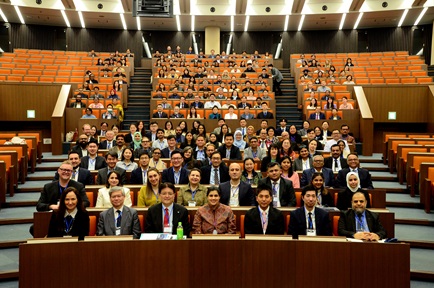To fight money laundering systems, we need sharp eyes but not silent directors
Nominee directors must highlight red flags; AI can also spot unusual movements of money
Singapore strengthened its anti-money laundering laws in July to tighten regulations on corporate service providers (CSPs). The move followed the conclusion of the $3 billion money laundering case -- the state's largest episode to date.
The latest measure highlights the Government's determination to clean up the dirty money problem, which has caused Singapore's reputation as a clean financial centre to take a hit. The focus on CSPs is noteworthy, as it tackles the overlooked part of our financial system -- the humans.
The use of nominee director services to incorporate shell companies has long been one way to circumvent the financial system to conduct illicit activities.
Criminals do so by either appointing their own nominee directors or engaging CSPs to hire on their behalf. With the changes to the laws in Singapore, nominee directorship can be arranged only by a CSP, unless the nominee is the sole owner of a registered CSP.
By putting the onus of selecting fit and proper nominee directors on CSPs, the message is clear: Businesses have equal obligations to fight financial crime or face legal and financial repercussions.
The amended laws, therefore, are expected to prompt CSPs to weed out unqualified nominee directors with poor credentials.
What this centralised oversight needs, however, is the ability to prevent these individuals from becoming passive, or better known as "silent directors", once they are appointed.
Maintaining vigilance
Even though nominee directors are not meant to be passive, in reality many past fraud cases have involved inactive individuals who allowed their names to be used in business incorporation documents in exchange for fees.
A mandated periodic assessment covering the company activities and financial transactions may be one way to ensure nominee directors maintain vigilance. In order to stay qualified as a nominee, individuals would have to give proof that they understand the business they represent and have taken steps to conduct due diligence on beneficial owners and key stakeholders.
Structured training may also be introduced to ensure that nominee directors are aware of red flags that might indicate money laundering activities. These may include transactions that don't quite align with the declared business objectives and overly complex holding structures.
AI can help
While the focus on CSPs' obligations can contribute to separating the wheat from the chaff, technological infrastructure must also be updated to keep up with tech-enabled threats like scams -- a major threat identified in the latest Money Laundering National Risk Assessment report.
When victims of scams transfer their funds, the illicit money often moves through multiple accounts of shell companies to obscure the trail. An artificial intelligence (AI) system can help in flagging this unusual and interconnected movement of money.
For example, the US Treasury Department has implemented an AI-based fraud detection system that has proven highly effective in identifying and recovering illicit funds. In 2023, this system helped recover US$375 million (S$497 million) by detecting subtle patterns in financial data that indicated fraudulent activities.
AI can also assist in sniffing out suspicious transactions from voluminous international wire transfers. The Society for Worldwide Interbank Financial Telecommunication (Swift) has launched AI-based pilots to enhance fraud detection in cross-border payments. These pilots involve using AI models to analyse historical transaction patterns and identify anomalies that could flag fraudulent activities.
Of course, AI systems are not without their flaws. As money laundering tactics evolve, AI systems may struggle with scenarios they have not encountered in their training data. After all, technology is only as good as the humans wielding it. A sophisticated algorithm might flag a suspicious transaction, but it takes human insight to understand the context and separate the truly nefarious from the merely unusual -- which is why the focus on the obligations on silent directors is equally crucial.
This is also why the human in the loop approach remains essential. While AI can be a great co-pilot in fighting financial crime, human judgment remains irreplaceable in this complex battlefield.
Ultimately, protecting the integrity of Singapore's financial system requires more than laws and technology.
With well-thought-out regimes and technological systems, supported by a vigilant population, we can effectively fight financial crimes and protect Singapore's reputation as a trusted global financial hub.
Kelvin Law is associate professor of accounting at Nanyang Technological University's Nanyang Business School, and his research examines corporate sustainability and financial fraud.
Source: The Straits Times







